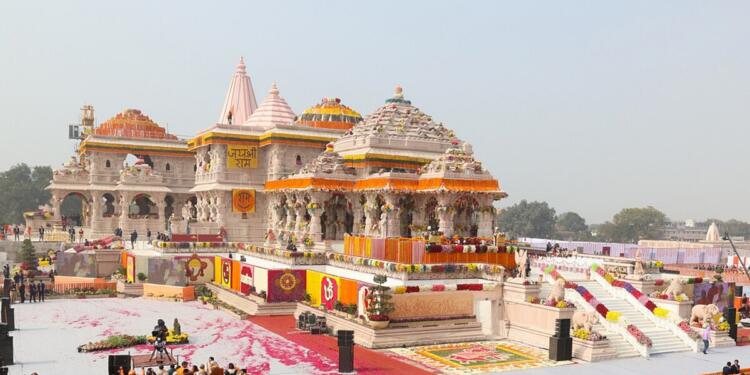The controversy that animal fat was used to prepare ‘ladoos’, the offering given to devotees as ‘prasad’, in Tirupati temple, is not dying down soon as chief priest of Ayodhya Ram Temple has revealed that the same sweet was distributed during the ‘pran pratishtha’ or consecration ceremony of the newly-built shrine.
According to reports, chief priest Acharya Satyendra Das said 300 kg of ‘prasad’ from the Tirupati temple was given out to the people during the consecration ceremony of the Ram Temple in January this year.
A massive controversy broke out soon after Chandrababu Naidu, Chief Minister, Andhra Pradesh. claimed that animal fat was used in the ghee used for the preparation of the ‘ladoos’.
On Friday, Satyendra Das expressed outrage over the allegations of animal fat being used in preparation of the ‘prasad’.
“If animal fat was mixed in the ‘prasad’, it is unforgivable. Strict action should be taken against people involved in it,” he said.
He also demanded an investigation into the allegation from a probe agency.
https://tfipost.com/2024/09/animal-fat-in-tirupati-laddoos-could-upset-lakhs-of-people/
“Vaishnav saints and devotees do not even use garlic and onions. In such a context, the use of fat in the offerings is very unfortunate. It is a mockery of the Hindu faith,” Das was quoted as saying by the media reports.
The Tirupati laddu row
The controversy started earlier this week after Naidu alleged that his predecessor, Jagan Mohan Reddy, allowed the use of substandard ingredients and animal fat in the ladoos.
Citing a lab report from Gujarat, Naidu’s TDP claimed the presence of “beef tallow”, “lard” and fish oil in the ghee.

The Centre, too, stepped in with Union Health Minister JP Nadda demanding a report on the issue from the Andhra Pradesh government.
“I got to know about the issue through social media. I spoke to Chandrababu Naidu today and asked him to share the available report so that we can examine it. I will also speak to the state regulators and take their views. The report will be examined and suitable action taken within the legal framework and regulations under the FSSAI,” Nadda said.


























